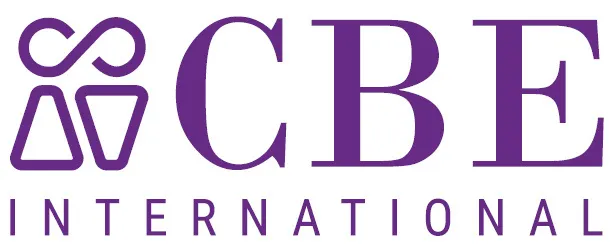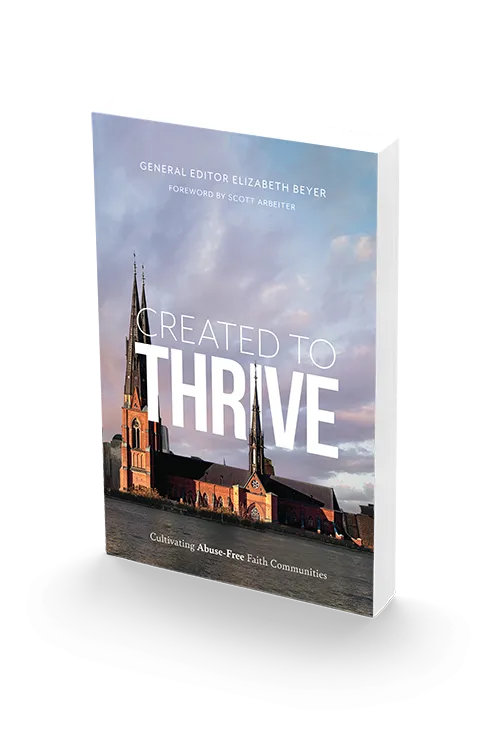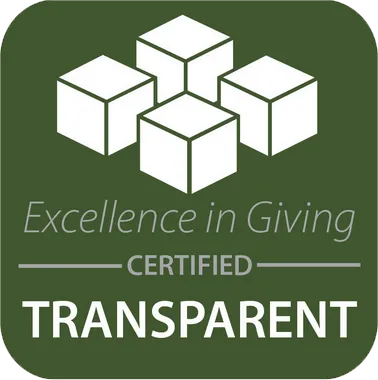In this issue, we wanted to hear from egalitarians across the movement to highlight the importance of working together to accomplish our mission of dismantling theological patriarchy. We all want the church to be a place where all are able to serve based on God’s gifting and calling. We want our leaders to be elevated to places or positions of leadership and spiritual influence based on their character. So, we asked a few intergenerational pairs of egalitarian advocates to share with us the egalitarian influences in their lives, how they’re working to share egalitarianism with the next generation, and the wisdom they have for how all ages of egalitarians can work together better. Let’s listen in to what they have to teach us.
Williams Family
Patricia Williams—Mother
Influential women in my life modeled egalitarianism, though I’m not certain they were consciously aware of the concept. My early models were my maternal grandparents, my mother, and two of my teachers. Through my grandparents, I believe I witnessed an egalitarian couple, for they were expressing the creative image of God they each possessed, as they mutually supported each other in their chosen vocations. My mother, my grandparents’ only child, modeled women in leadership to me. She was a leader in our church and in our community. Her example convinced me that I was not limited in possibilities for growth, development, and opportunities to contribute toward the betterment of humankind.
Two of my teachers deposited words of wisdom and inspiration in my life, which spurred me on to acquire preparation that might position me for equal opportunity. As Christian women, they convinced me that I must accept that which corresponds with God’s original intent for me as one created in his image and his plan for coequal stewardship and responsibility for male and female (Gen. 1:26–27). In retrospect, I view them as nonviolent protesters of gender discrimination.
In my four decades of experience in academic and faith-based endeavors, principles of wise living have emerged. I offer these for young and emerging egalitarians.
First, divine revelation is imperative. Every opportunity in my life that has been divinely appointed has concluded on my terms. My perspective is that God set the season for particular assignments in my life, even if I encountered racial discrimination, gender discrimination, or, most recently, ageism, God disallowed anyone or anything to interrupt what he had ordered for my life. I therefore chose to seek God’s direction through prayer, study, and journaling. As direction formed across time, I followed the path of God’s guidance, completing seminary study and embracing the call to ordained Christian ministry. One is wise who stays focused and attuned to divine direction.
Second, priorities are important. God calls us to live in a divinely focused manner, doing all things decently and in order, having purpose and not growing weary in doing good, dwelling in peace with others, and developing the gifts deposited in us by God’s Spirit to accomplish his plan for our lives. One is wise who lives with priorities in order, avoiding entrapment and enticement that comes through the “lust of the flesh, the lust of the eyes, and the pride of life” (1 Jn. 2:16b).
Third, excellence is essential. Discovery of one’s spiritual gifts is necessary, for we are assured assignments in life through employment of God’s grace-ability in us (Prov. 18:16). The gifts point to God’s purpose for one’s life; and, through these grace-given abilities, one has a greater chance to succeed, even in the face of unfair practices. Excellence flows through humankind in accordance with the capacity God grants. One is wise who discovers, cultivates, and offers his or her spiritual gifts to succeed spiritually, personally, and professionally.
Fourth, development of peace-making interpersonal skills is necessary. God’s people are equipped with overcoming power. “Everyone born of God overcomes the world” (1 Jn. 5:4). This is an all-encompassing truth which builds hope in all Christians. There is nothing God’s people will face, gender discrimination included, that is impossible with him. Peace-making interpersonal skills require us to renew our minds and to present ourselves as worshipers of God in all we do, avoiding evil responses and allowing God to vindicate us. Then we will prove God’s good and perfect will. Admittedly, this is tough, but it becomes a way of life we can treasure, as we witness God’s faithful protection and preservation of us because we re-present him on the earth. One is blessed who focuses on giving others the benefit of his or her obedience to God.
Finally, studying God’s word guides one’s steps. I am convinced that the answers to all human issues and concerns are found in the Word of God. The Bible is the best guide for safety, security, and success in life. One who seeks answers to life’s challenges in the Word of God becomes a person of wisdom.
Some of the best ways we can work together intergenerationally are to trust each other, share and help each other develop, pray for each other, become accountability partners, respect differences in opinion, and adopt a willingness to work toward mutually beneficial resolutions and strategies to reduce gender discrimination.
Jaclyn Williams—Daughter
Personal experience made me an advocate for egalitarianism. Long story short, the wolf of explicit bias, in the form of a dangerous patriarchal viewpoint that denied the call on my life from God, came to my door. My response was to reject this viewpoint as false, dangerous, and arrogant. I was hurt and angry, but I was not tempted to believe that this viewpoint was correct. God’s love and grace is what allowed me to respond in this way.
I grew up knowing that my mother was accomplished, but more than that, she cares deeply for people. Even when I was a child and did not realize the struggles she faced in the name of being an egalitarian, I felt her God-guided strength. This imprinted upon me in a formidable way. I was also greatly supported by my father and two brothers, and I grew up in a church that had women in leadership roles. Nothing is perfect, but I think the visual example of women occupying certain spaces, coupled with my experience in my family, gave me the confidence to see myself in terms of who I am rather than on the terms of those who are biased in whatever way.
More experienced egalitarians can help those emerging in their process of advocacy by modeling patience integrated with passion. Wrestling with the complicated communal and individual aspects that are necessary in the work of egalitarianism takes a lot of patience. In my experience, it is those who have walked this path for a longer period of time who have learned to better cultivate the marriage of patience and passion with grace and resilience. They negotiate the waters of this tension between angst and hope from a place of firsthand knowledge that I appreciate and wish to emulate. It’s not that younger or emerging egalitarians cannot do this, but some things are more profoundly learned across a period of time and seasons.
Not to make too broad of a statement, but younger egalitarians have grown up with a perspective that is more comfortable operating in a global community. So, in some ways I feel like that perspective has allowed the younger generation to be less likely to operate in silos.
I think one of the greatest challenges to any kind of intergenerational work is intentional striving towards empathy from all sides. Seemingly competing viewpoints and angles can decrease empathy. Empathy is work that begins internally, allowing for a person’s capacity and desire to work alongside others with empathy to be a priority that impacts the community. Sometimes institutional or even cultural structures are designed to create a hierarchy that is a barrier to empathy, even amongst people who are working toward a shared goal. Continually weaving inroads of empathy within the process is vital. It can be difficult, but it is worthwhile and vital.
I’ve learned that the path forward is often revealed in the sharing of our stories. Before the work of discovering and implementing solutions, I believe we need the shared connection of our stories reflected in the eyes of others, to be seen and heard by others. The constant challenge to see the other and listen to the other, and to stay open to the process of learning from expected and unexpected avenues, is arduous. The searching of self—as individuals and as a body—is meant to be an ever-present process.
I would love for there to be an overtly shared viewpoint that the goal is not to find the “one way” to create egalitarian spaces. There are many contexts, and there is not one “fix” that will allow for these contexts to feel secure in claiming their God-given space. Many people feel and operate in this way, but I have experienced that the overarching narrative is not always formed in this way.
Lamos Family
Chris and Barbara Lamos—Mother and Daughter
We have become advocates for egalitarianism through studying Scripture, materials from CBE, and books, especially Equal to Serve: Women and Men Working Together Revealing the Gospel by Gretchen Gaebelein Hull. Older egalitarians have so much wisdom to share with younger, emerging egalitarians. Because of their life experiences, older egalitarians can share their unique experiences by applying them to specific situations in the younger person’s life. The older I (Barbara) get, the more I treasure the wisdom of the previous generation, especially the knowledge and wisdom my mom (Chris) has shared with me.
Younger egalitarians also have strength and determination. They are forging ahead, building on the foundation already laid. They have much more material and support and are using their energy to share the truth of egalitarianism in many facets of the church. They are not timid in standing up for truth and find it unacceptable when situations not in accord with Scripture continue to exist; they take action. It is refreshing to see the younger generation’s creative applications of living an egalitarian life.
It is so important that we are intentional in working intergenerationally. We need to support each other. We need to be intentional about meeting together intergenerationally. CBE conferences are an example of seeing this concept in action. We need to pray for each other. We need to educate each other, and we need to glean as much as we can from each other. We are all in this together.
We have found that to become an egalitarian advocate, no matter one’s age, one must pray and pray and pray. We pray for wisdom, for the words to say, for the hearts and minds of those listening to what we say to really hear. One must do the work to be well-prepared. Study Scripture and know the facts. Know your audience. Don’t ever back down. You always have your best Advocate with you—the Holy Spirit.
If we could change anything about egalitarian advocacy, it would be to have a Bible translation that is gender-accurate. So many problems would be solved! Another change would be for people to understand that if a practice based on tradition is excluding a people group, it should be changed. There is a huge difference between practices based on Scripture and practices based on tradition.
We hope that the excitement and drive of egalitarian advocacy never disappears. Even though swimming against the tide is extremely draining, we hope that advocates would not weary in doing good. We pray for God’s blessing on Mimi Haddad, the staff, and the board of CBE. Under the Holy Spirit’s guidance, may CBE continue to be an advocate for egalitarianism and a resource to support all advocates for egalitarianism as we all work for our Lord.
Dixon Family
Rob Dixon—Father
I was fortunate to have a good number of egalitarian influences early on. First, I grew up in a church setting where women served on the pastoral team and preached
occasionally. Second, the women in my family modeled a robust faith, including both of my grandmothers and my mom. Third, one of my early youth group mentors was a woman. While I wouldn’t say I grew up in an overtly egalitarian context, I am grateful that my upbringing provided the raw materials for me to develop into such a person.
Early on in my ministry career, I thought of myself as an egalitarian advocate, but my convictions were not yet tested. One day, I walked into the campus cafeteria for a meeting about gender equality with one of our students, only to realize that that student had brought his complementarian pastor along with him. Over the next hour, that pastor proceeded to eviscerate my arguments as he repeatedly labeled me a “false teacher” for allowing women to speak in our fellowship meetings. That experience challenged my view of myself. If it meant I would be personally attacked, was I really going to be an egalitarian advocate? I’ve learned that you’re not really an advocate until you’ve experienced pushback because of your attempts to advocate.
Older egalitarians need to be regularly and intentionally teaching the Scriptures. All the research on the up-and-coming generation (called Gen Z or iGen) shows that they are fundamentally inclusive. I see that in the college students I work with, and I see that in my kids. Egalitarian advocacy should come naturally for them, but it’s our job to help these upcoming generations understand that their default inclusive setting is affirmed in the Scriptures. For instance, it’s not uncommon for Gracie to be outraged by the misogyny she sees around her, and when I process that with her, I try hard to link it to Scripture. Of course she should be outraged, God is too!
Older egalitarians also need to model the full and equal partnership of women and men in ministry. I grew up with few models for what healthy ministry partnerships could look like, and so we need to provide those for emerging egalitarians. I have made it a goal to bring my kids with me when I teach and train on egalitarian topics. For instance, I’ve often invited one or more of our children to come with me when I speak. I remember driving two hours with our son Josh to speak on gender equality at a college campus, practicing my talk the entire drive. He heard my talk probably five times that day! Whenever I’ve brought the kids with me, it benefits our relationship, their egalitarian convictions get solidified, and the crowds I encounter love seeing me walk through the door with my child.
Without question, what our movement needs is more egalitarian advocates! A growing part of my ministry is about developing more advocates, and that’s also true in our own home. I’m desperate for my kids to experience a different version of church, one where women are free to fully use their gifts alongside their brothers. As egalitarian advocates, our foundation is God’s Word. We hold the conviction that the Bible’s message is for the full equality between women and men. I hope that conviction only grows and becomes more compelling over time.
Gracie Dixon—Daughter
I wouldn’t say I’m an advocate for egalitarianism yet, but I believe I am on my way to becoming one. My family has taught me from a young age what it means to be egalitarian and how to advocate for what you believe in. I think older egalitarians, like my parents, can teach younger egalitarians like me the history of the movement and how the church has evolved. Egalitarianism has always been ingrained in my brain, so to know how it got there would be helpful. The older generation grew up with men having privileges, and that was normal, while my generation has grown up expecting equality.
I hope that men and women will continue to fight for equality, and that it will not just be women working to make sure that we are respected for our gifts and ideas on the same level as men. When I was at the CBE conference last August, I learned that I need to use my voice to speak up for women. Recently, both the boys’ and girls’ soccer teams at my school won league championships, but when the office announced the results on the intercom, they only mentioned the boys! I immediately noticed and mentioned it to my classmates. I’m learning to pay attention to things like this as I think about becoming an egalitarian advocate.
This article appeared in “What Holds Us Together: Hope that Spans Generations,” the Spring 2020 issue of Mutuality magazine. Read the full issue here.





